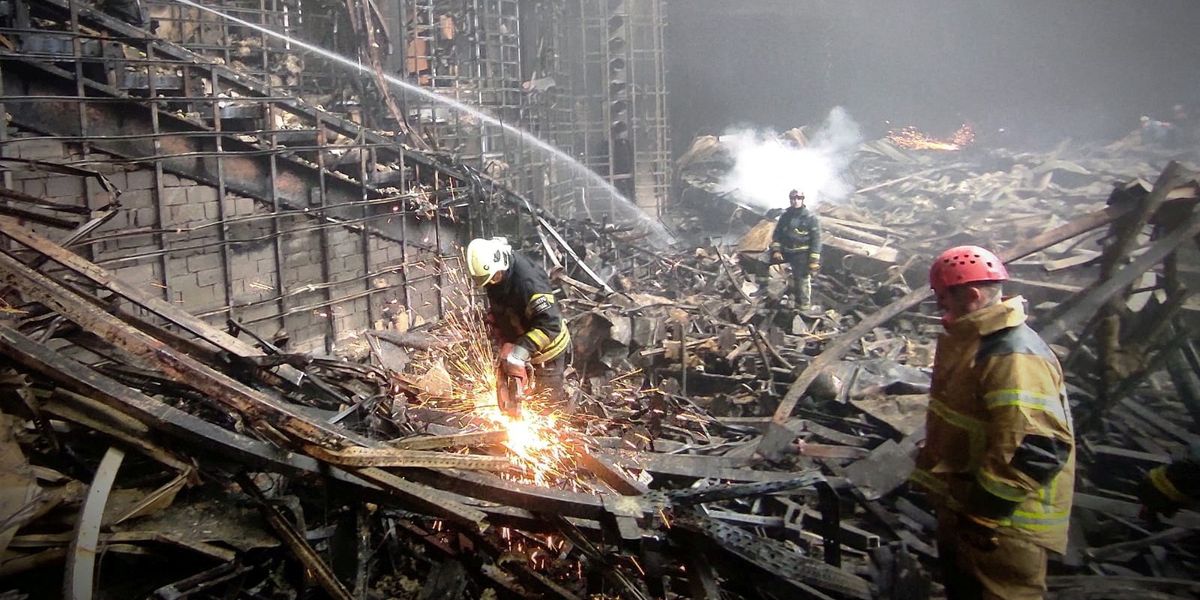If there were ever a time when American intelligence officials could empathize with their Russian counterparts, it would be now, in the aftermath of the horrific terrorist attack on Moscow concertgoers a few days ago.
The sense of failure and frustration that Russian security officials must be feeling should be all too familiar for Americans whose job it had been to detect and prevent the September 11 attacks by al-Qaida radicals on the United States. A shocked American public wondered why the CIA and FBI had failed to “connect the dots” that could have revealed the plot. Russian President Vladimir Putin had even telephoned President Bush a few days before the attacks to warn that Russian intelligence had detected signs of an incipient terrorist campaign, “something long in preparation,” coming out of Afghanistan.
In the aftermath of the Moscow attack, much Western media coverage has derided the Russian government for failure to capitalize on a similar American warning of possible attacks on a concert or other public venues. But the 9/11 experience showed that “connecting dots” is far easier in retrospect than in advance, and that translating warnings into effective security measures is often a complicated endeavor. In fact, Putin announced publicly after the American warning that he was putting Russia’s security services on heightened alert, despite calling that warning a “provocation.”
American analysts can also appreciate the enormous political and psychological pressures their Russian counterparts must now be facing. There is a widespread human tendency to try to fit new events into preexisting narratives, as well as to attribute big shocks to big causes. In the case of 9/11, this prompted the White House to strongarm the CIA for evidence linking al-Qaida to Iraq, which had long been a bête noire for key Bush administration officials — not in a conscious effort to cook the books, but out of sincere conviction. Some of them continue to believe there was Iraqi involvement, despite the 9/11 Commission’s conclusion that it did not see “evidence indicating that Iraq cooperated with al Qaeda in developing or carrying out any attacks against the United States.”
Putin has not – at least not yet – explicitly blamed Ukraine for the concert attack. But he has asserted that the Tajik suspects in Russian custody had attempted to flee across the Ukrainian border, where the Ukrainians had allegedly “prepared a window” for the escape. And although he has acknowledged that these suspects are “radical Islamists,” he has questioned whether they were acting at Ukraine’s behest. Whether this is true – or whether Putin sincerely believes it – remains unclear. Nonetheless, it is obvious that the Kremlin is predisposed to seek evidence linking the attack to Ukraine and its Western supporters, which would help deflect blame for failing to defuse the plot and satisfy the psychological need to link a great evil to one’s most immediate adversary.
Given Putin’s unrivaled dominance of the Russian government apparatus, as well Russia’s deep mistrust of Ukraine and the United States, investigators will be sorely tempted to connect the dots in this case in a particularly anti-Ukrainian and anti-American way. America’s pre-attack warning and quick post-attack insistence that Ukraine was not involved could be viewed as signs that Washington was trying to mask Kyiv’s plot, rather than as evidence that U.S. intelligence had been tracking ISIS involvement from the start.
The choice of Tajik triggermen could be seen not only as a false flag operation, but one aimed at poisoning Russian attitudes toward Central Asia immigrants and workers, whose labor has been critical to addressing Russian labor shortages created by the demands of the Ukraine war. One of the Kremlin’s many incentives to pin blame on Ukraine might in fact be to minimize the likelihood of public pogroms against Central Asians.
It is easy to imagine that Russia’s desire for revenge will be enormous in the emotionally supercharged reaction to the concert attacks. The need for retribution was certainly strong in the United States following 9/11, leading Washington first to rebuff Taliban offers to turn over Osama bin Laden and later to supplement its military operation in Afghanistan with an invasion of Iraq. “We wanted revenge,” according to one former U.S. official, “and so we made a lot of mistakes that we shouldn’t have made.”
What forms could such revenge take with Russia? The downsides of retributive attacks in Central Asia would loom large for Moscow, already concerned about the potential for losing influence in its border areas to China or the West. The much more tempting target would be Ukraine, where the Russian military could launch massive air strikes on residential areas of Kyiv or other major cities, a step that Putin has largely avoided to this point in the war. Russia’s appetite for a compromise settlement, already diminishing in proportion to its growing success in exhausting Ukrainian forces, would almost certainly plummet even further should Russians become convinced that Ukraine masterminded the concert attack.
The base emotions, misperceptions, and mistrust fueled by the concert attack underscore just how precarious the U.S.-Russian relationship has become. If officials in Moscow and Washington are unable to manage such a seemingly straightforward matter as the duty to warn each other about the plans of a common terrorist foe, how can we expect them to defuse the dangers that an unintended clash over Ukraine might escalate into direct — even nuclear — combat?














